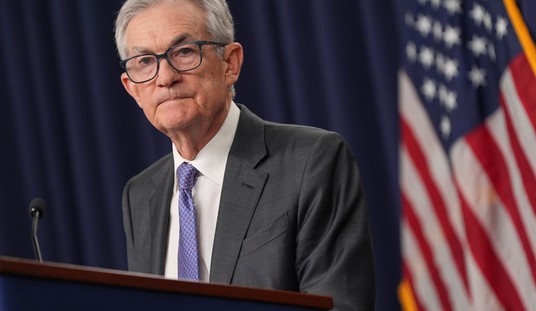I published a piece on Sunday in which I supported either Brett Kavanaugh withdrawing his nomination or an investigation before a vote.
It’s true that there are not a lot of concrete details that can be investigated.
Christine Blasey Ford says the sexual assault occurred in “the early 1980s” and believes it happened in the summer of 1982. She says it occurred during a small gathering at a house, although she doesn’t recall whose house it was. And investigating something that occurred more than three decades ago is difficult enough — with no Facebook or Foursquare to help verify events or locations — and made more difficult when the accuser admits she can’t recall specific details.
However, Ford did name at least four other teenagers who were there. She did discuss the incident in both couples therapy and individual therapy in 2012 and 2013, respectively. The Senate Judiciary Committee can subpoena these individuals to testify under oath. Kavanaugh and Mark Judge are two alleged party attendees who have already issued denials (note: Kavanaugh’s classmate Patrick Smyth says he was identified in the letter and denies the events, though he hasn’t been publicly identified by Ford yet); they should be asked about these denials under oath (and it’s illegal to make a false statement to Congress, which includes the Senate Judiciary Committee). Ford can also testify under oath.
A hearing during which Ford and all those involved testify and answer questions under oath would, in my eyes, certainly count as investigating Ford’s claims.
And, as I wrote on Sunday, if an investigation finds that her accusation is inadequate, or inconclusive, then Republicans could at least rightly argue they took the accusation seriously and investigated it to the best of their ability. Senators would then be free to vote their conscience during the confirmation vote.
Unfortunately for the Court, and to the detriment of our nation, this accusation will likely follow Brett Kavanaugh and stick to every consequential Court decision of which he is a part. Our country’s justice system includes due process, but there is no due process for public opinion, and we simply may never know what really happened. And this situation has now turned into an unhealthy game of telephone, where details leaks and then are spread, disproved, corrected, or backtracked at an alarming pace.
I believe that putting the country through this was unhealthy. I believe that this process is dangerous for the Court. But this situation was one in which there was no perfect solution; there was no alternative that didn’t set a bad precedent in some way.
That is why I thought that the best two options were for Brett Kavanaugh to withdraw for the good of the Court and its legitimacy or, if he did not, an investigation into the allegations to determine whether the accusation was credible or inconclusive.
It is wrong for some Democrats to call for an FBI investigation or keeping the seat vacant indefinitely. Ford’s allegations are worth investigating, but this is not under FBI jurisdiction, nor is it necessary to drag an investigation out.
The FBI did interview Anita Hill and Clarence Thomas, who were both federal employees, in 1991. But what Ford has described would not fall under FBI purview: Her accusation involved private citizens at a private residence, and the Department of Justice has already said this “allegation does not involve any potential federal crime.”
Secondly, there is no need for a long, drawn out investigation, especially with so few solid details to investigate. There is time to properly investigate the accusation. The midterm elections are not until November 6th, and a thorough investigation could be completed well before then; likewise, there is no need to rush the investigation. We should take an accusation regarding a nominee to Supreme Court seriously, respectfully, and thoughtfully.
In that vein, we should take care not to let an investigation turn into a mockery or a sham. Senator Susan Collins (R-ME) recommended allowing counsel for both Ford and Kavanaugh to question the other. NRO writer David French emphasized that it would be brilliant to open the proceedings with two attorneys, because it would “give a reasonable facsimile of a rigorous judicial proceeding” and would set the stage for Senators from both sides to behave professionally and appropriately, without theatrics or pandering to the base.
The problem is now if Christine Blasey Ford refuses to testify.
Senate Judiciary Committee Chairman Chuck Grassley (R-IA) announced in a letter that he would reopen the hearing giving Ford the opportunity to tell her story and answer questions before the Committee:
I have reopened the hearing because I believe that anyone who comes forward with allegations of sexual assault has a right to be heard, and because it is the Committee’s responsibility to fully evaluate the fitness of a nominee to the Supreme Court. I therefore want to give Dr. Ford an opportunity to tell her story to the Senate and, if she chooses, to the American people. I also want to give Judge Kavanaugh an opportunity to respond to the allegations. By hearing out both Dr. Ford and Judge Kavanaugh, the Committee will endeavor to discover the truth of the matter, and will be better able to make an informed judgment about Judge Kavanaugh’s nomination.
This was the right move and the right response.
However, Ford’s attorney’s response has not been encouraging.
As Megan McArdle wrote on Twitter: “An allegation that someone is unwilling to deliver under oath is substantially less credible than one they’re willing to testify about. … You cannot refuse to confirm a nominee over allegations that the accuser is unwilling to offer under oath.”
Our justice system provides alleged victims with the ability to be heard; it also provides protections for the accused. French pointed out that testifying is “an act of will that’s foundational to our system of justice.”
If the accuser is unwilling to testify, then investigating her accusation is significantly more difficult, and that would point to the investigation finding her accusation “inconclusive” or “dubious” — at which point the vote should proceed.
The views expressed here are those of the author and do not represent those of any other individual or entity. Follow Sarah on Twitter: @sarahmquinlan.














Join the conversation as a VIP Member